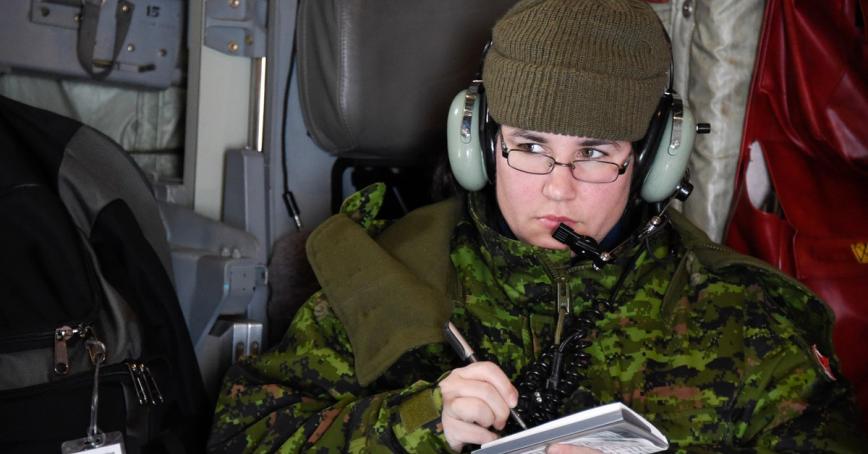Career pivot leads to new opportunities
Topics
Featured
Share online

This story is part of a series highlighting students from the Master of Arts in Professional Communication program.
I am at a crossroads as far as career goes.
I did not anticipate leaving the Canadian Armed Forces (CAF) at the age of fifty, but medically I could no longer stay in uniform. Since I already have a bachelor’s degree in communication and a diploma in public relations, I could have looked for another job in my field during the last six months with the CAF, but I had the opportunity to go back to school with the support of Veterans Affairs Canada.
The time was finally right. I always wanted to complete a master’s degree, but the demands of my career and family made it a challenge. That, and I did not want to go into debt to go back to school. Since I was going to have time on my hands and the funding to do so, I jumped at the chance to make one of my dreams a reality and applied to the Master of Arts in Professional Communications program.
My program highlights
Blended Learning
Choosing what program to pursue required careful thought. With school-aged children and a spouse with a busy career of his own, I needed to find a program that offered a blend of interesting and relevant in-person and virtual courses. I also wanted to get into a program that had a good reputation amongst practitioners and scholars alike.
Royal Roads University fit the bill on all accounts.
Cohort Model
What is one of my secrets for success? Getting to know and working with the people in my cohort.
My cohort (MAPC Fall 2022) is an intriguing blend of professionals. Although some come from the communications or journalism field, there are others who found their way to the program in other ways. Each person has a perspective to share and does so with enthusiasm and respect. While the professors are generous in sharing their knowledge and guiding us in our professional pursuits, it is my cohort that has made the whole experience memorable and rewarding. From the youngest, just starting their career journeys, to the more seasoned of us, some of us embarking on second or third careers, we have found common interests and worked together to face the challenge of completing our graduate degree.
Course-Based Degree Path
I decided to complete my degree taking the course-based path. First, I have little interest in becoming an academic. Second, I already did a thesis as part of my bachelor’s and did not enjoy the experience. And third, and perhaps more importantly, there were frankly too many courses I am interested in. I had a hard time choosing!
Of my PCOM (professional communication) courses, I enjoyed the ones with practical applications (e.g., media productions, digital strategic communication, and organizational communication) the most as they are more relevant to the trends I see in the workplace.
My general advice to future MAPC students includes the following. First, breathe; you will get through this. Two, take one day at a time, breaking everything into smaller chunks makes things easier to manage. Three, get to know the other students in your cohort; they will be good sources of support, knowledge, and advice. Four, communicate with your professors often, especially when you are feeling overwhelmed, have questions, or need some extra time to work on an assignment.
Photo credit: Mathieu Gaudreau
Learn more about the Master of Arts in Professional Communication program.